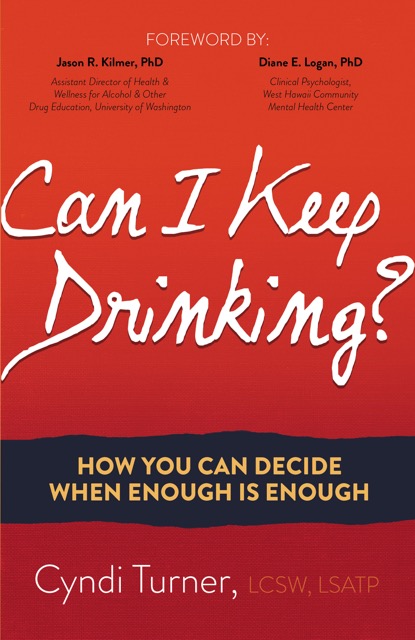Approximately six percent of the Unites States’ population struggles with a severe alcohol use disorder. This group and their loved ones will experience devastating consequences. On the plus side, most traditional treatments and self-help groups are geared for their recovery. However, there is a larger number of the population—over 90 million people— that have a gap in services. They will avoid getting help for fear of being labeled an alcoholic, forced into treatment, made to attend 12-step meetings, and have to stop drinking completely. As health care providers, we need find ways to help this large number of alcohol users who are not experiencing addiction, but may be dealing with a mild or moderate alcohol use disorder.
There is a controversial, emerging treatment option: moderation. From my twenty years experience of working with people experiencing problems from alcohol use, I developed the “How Do I Know If I Can Keep Drinking Quiz.” The quiz offers predictions for whether someone is a candidate for moderate drinking. The Dietary Guidelines for Americans defines moderate alcohol consumption as having up to 1 drink per day for women and up to 2 drinks per day for men. Negative predictors for being able to moderate include:
- Daily drinking
- Drinking to deal with emotions
- Drinking alone
- Experiencing mental or physical health problems
- Having legal, probationary, or employment conditions
The worst predictor for being able to continue drinking is having withdrawals. This almost always means that the body has a physical dependence on alcohol and that the person likely meets Diagnosis and Statistical Manual 5 criteria for a severe alcohol use disorder, placing them into the six percent of the population. Several predictors that I have identified that lead to a better chance of being able to drink moderately include:
- Willingness to go through a period of abstinence to develop and implement coping skills
- Delaying drinking until after age 21 thus reducing potential for addiction
- Willingness to monitor amount and frequency of drinking
- Consuming when alcohol is part of a celebration and not the main event
The number one predictor for being able to moderately drink is having a support system that can offer perspective, accountability, and motivation. I believe that it is important for clients to have tools to learn how to moderate. I help them understand why they were drinking, why they want to continue, and ways to make it safer for them. I prepare them for how to drink again and give them a Gut Check for whether their Moderate Drinking Plan is working that includes: amount, frequency, intent, and impact. There are many paths to recovery. I believe we need to offer alternatives to the traditional models of alcohol treatment. If you have a client or know someone who needs help but is avoiding getting it for the reasons listed above, please check out Can I Keep Drinking? How You Can Decide When Enough is Enough. The book offers more information and resources to help all types of drinkers. To find out more about treatment options go to www.insightactiontherapy.com.To order your pre-public release copy go to www.canikeepdrinking.com







